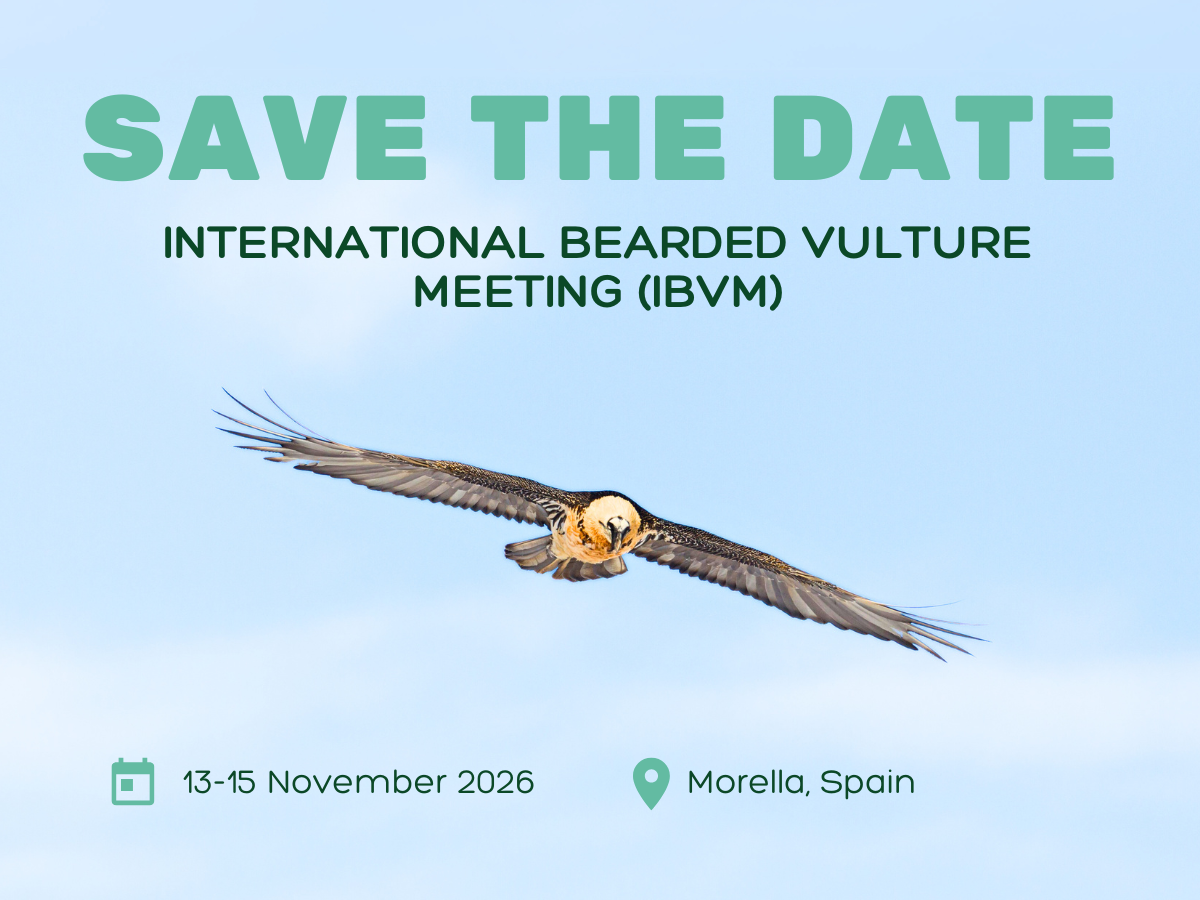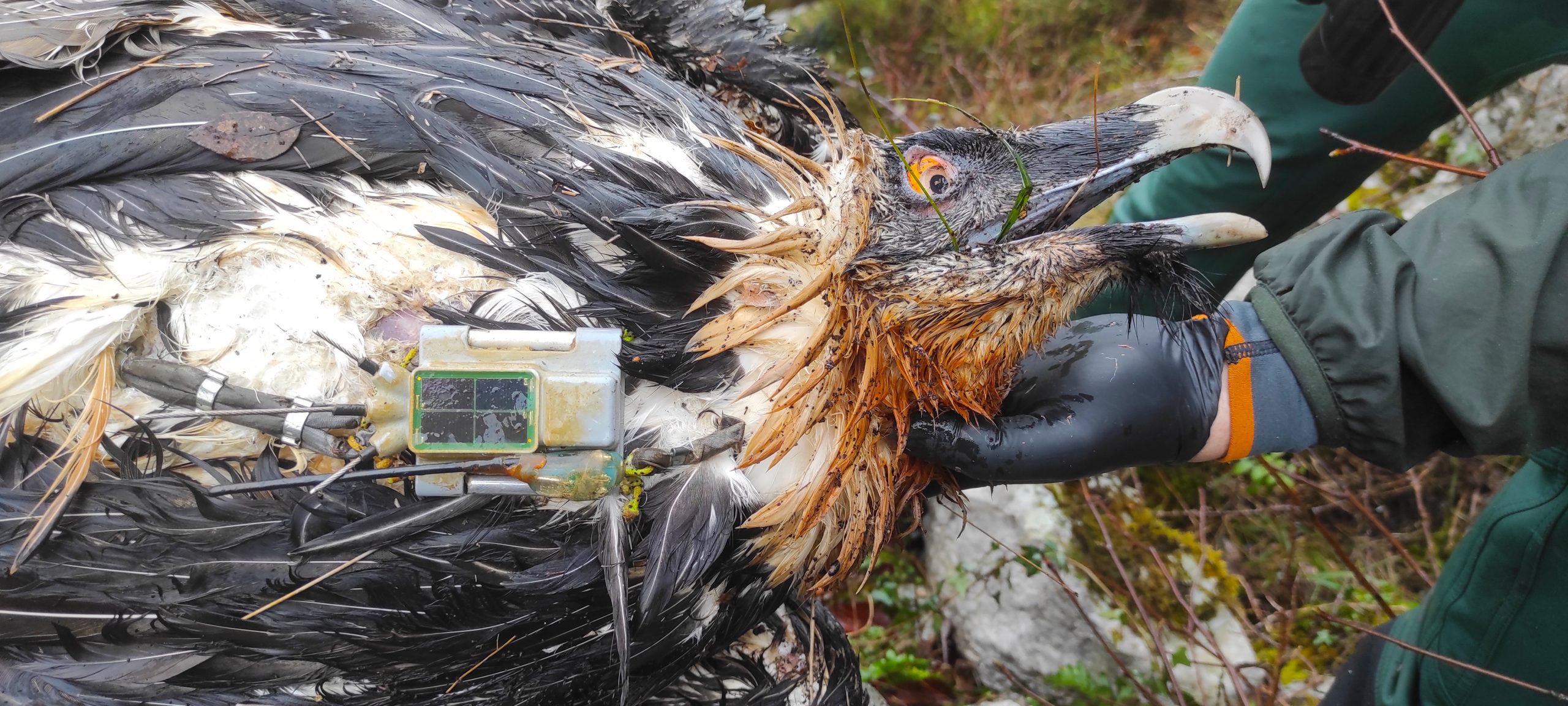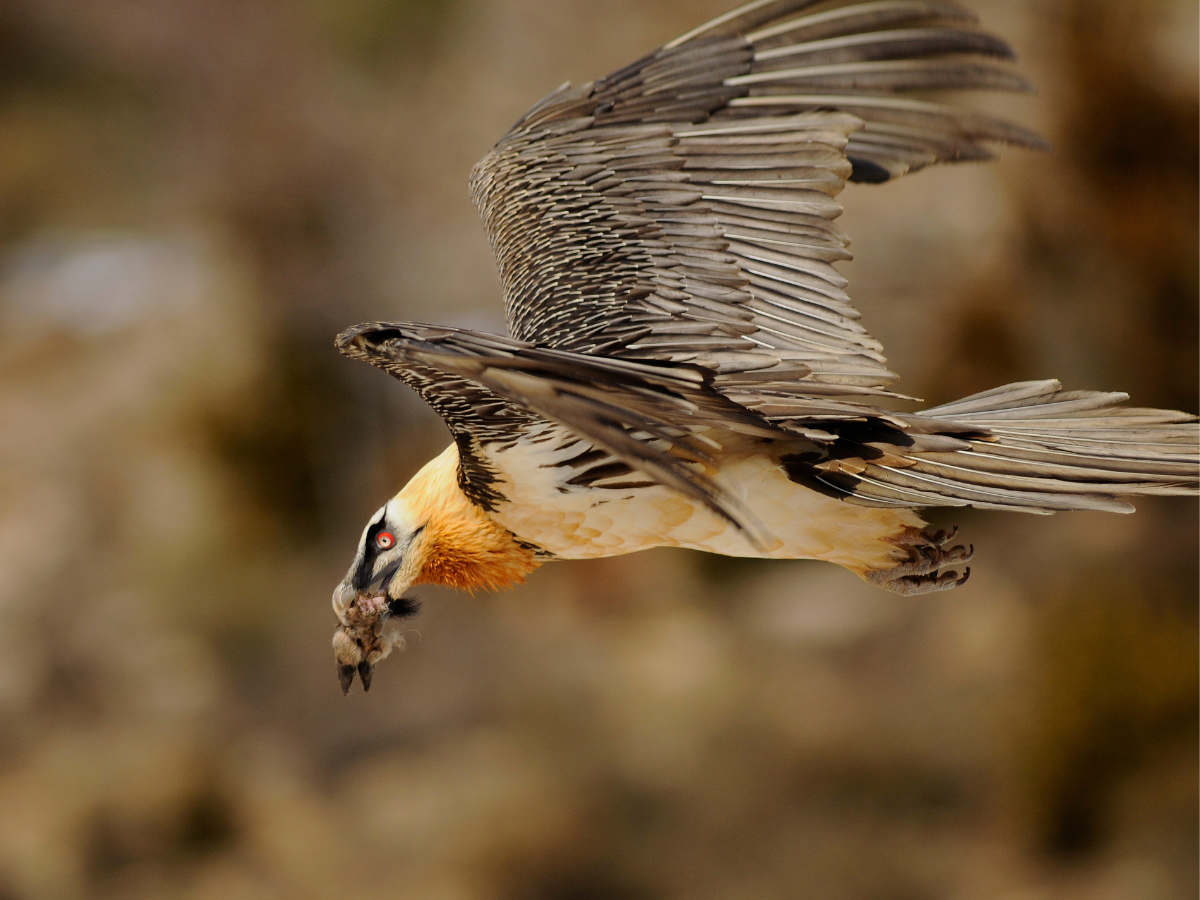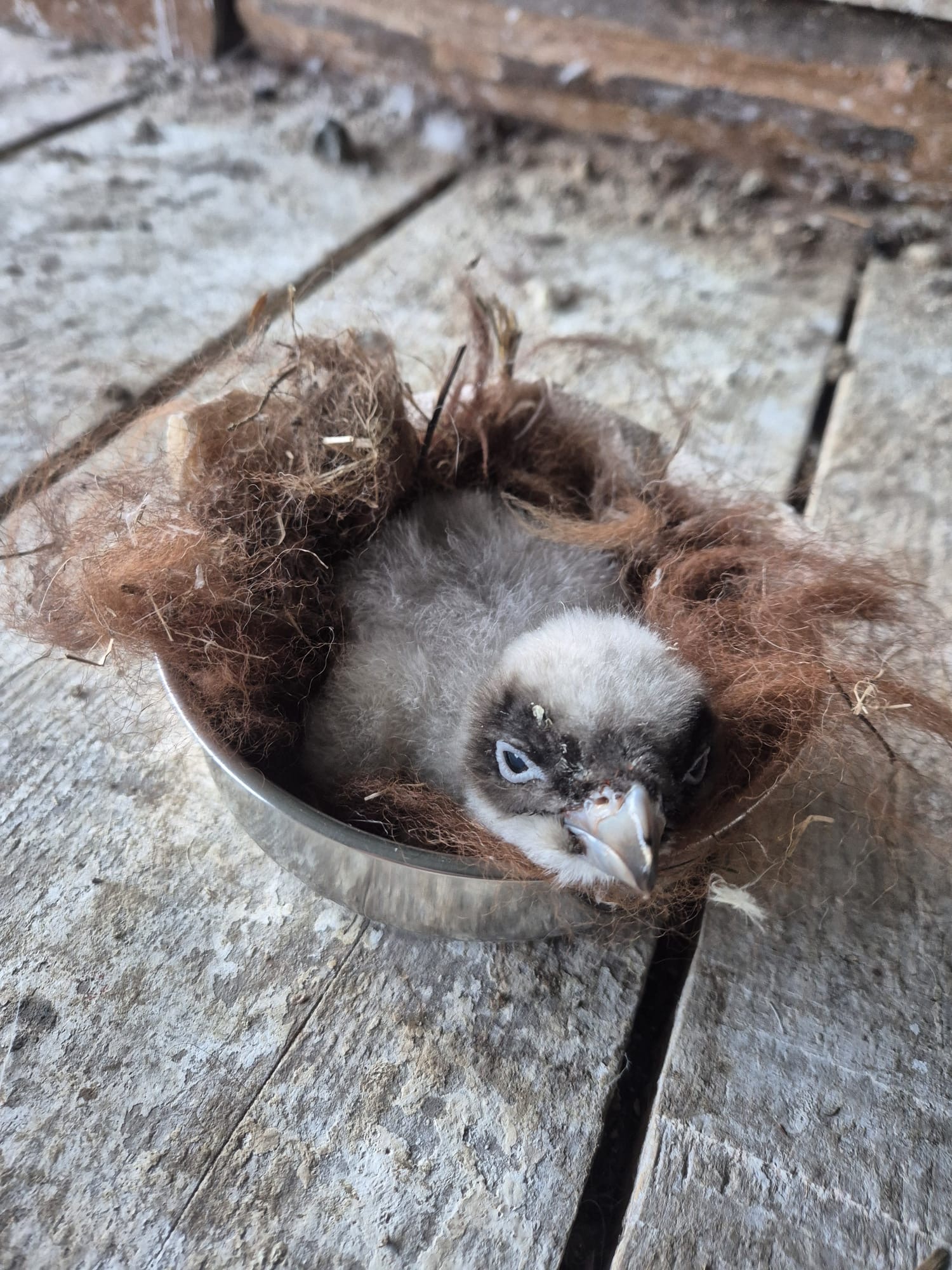On May 17, 2025, the ancient Tuida Fortress in Sliven bore witness to a historic moment for Bulgarian biodiversity: the first-ever release of Bearded Vultures (Gypaetus barbatus) into the wild in Bulgaria. This long-awaited milestone marked the species’ symbolic and physical return to the Bulgarian skies, more than five decades after their disappearance. The event, held as part of the Bearded Vulture LIFE project, was the result of tireless conservation efforts spanning nearly 30 years.

The missing vulture returns
The Bearded Vulture was once part of the Bulgarian landscape, with the last confirmed sighting occurring in 1972 in the Sinite Kamani Nature Park. Since then, it has remained absent from the country.
Now, thanks to international collaboration and many decades of dedication and careful preparation, three juvenile Bearded Vultures—two from Zoo Ostrava in the Czech Republic and one from Green Balkans Wildlife Rescue Centre in Stara Zagora—have been given a chance to thrive in their ancestral home. The birds, named Boev, LifeBG, and Balkan, were carefully transported and released into an artificial nest at the Sinite Kamani Nature Park, where they will remain under close observation until they fledge naturally and begin life in the wild. So the birds have now returned to the very same spot from where Bearded Vultures were last seen in the wild in the country in the 70’s.
Celebration of nature and cultural heritage
The release ceremony was a powerful celebration of conservation and community. Held within the historical walls of Tuida Fortress, the event attracted a wide range of participants: environmentalists, government representatives, local residents, schoolchildren, and nature lovers from across Europe.
The moment was the first of its kind, not only within the project but in the entire history of nature conservation in Bulgaria – it was a day-long festival of environmental awareness and Bulgarian cultural identity. It featured a rich program that included performances by local folklore ensembles, demonstrations by the Proto-Bulgarian School “BagaTur”, interactive workshops for children, exhibitions, a farmer’s market, and even a 360° video booth. Attendees also enjoyed an open-air screening of Chronicles of a Dream Come True, a film capturing the vision and hard work behind the reintroduction efforts.
The strong public turnout and festive spirit transformed the release into a powerful moment of shared hope and national pride. As the sun set behind the Balkan Mountains, the symbolic message was clear: Bulgaria is ready to embrace the Bearded Vulture once again.
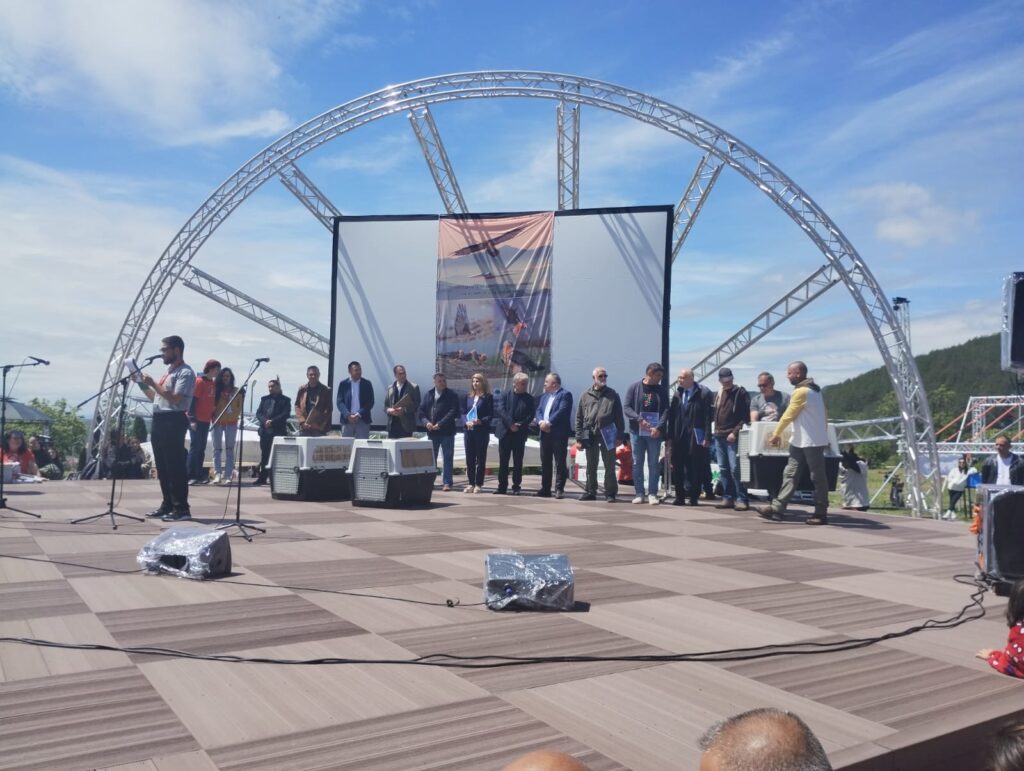
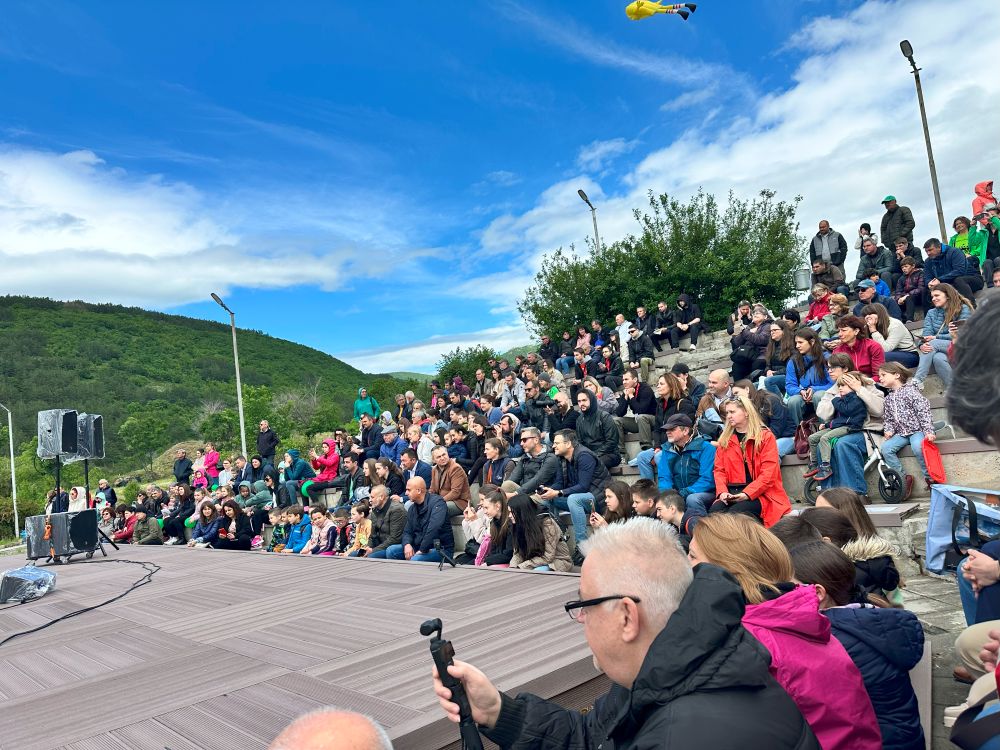

Meet the chicks: Boev, LifeBG and Balkan
After the festivities, the three young vultures were taken to the release site in Sinite Kamani Nature Park and placed in artificial nests that had been carefully prepared by the team.
All three are males and hatched just a few days apart. Captive-bred Bearded Vultures are typically released at around 90 days of age, usually in pairs or trios. Releasing them together encourages social interaction and significantly increases their chances of survival in the wild.
Boev (BG1256) hatched on February 12, and LifeBG (BG1258) followed on February 15 at Zoo Ostrava in the Czech Republic. They are part of a highly successful breeding season at the zoo, which saw four Bearded Vultures hatch this year. Zoo Ostrava plays an important role in the European Endangered Species Programme (EEP) for Bearded Vultures, and these two chicks now contribute directly to restoring the species in Bulgaria.
Boev is named in honour of Nikolay Boev (1922–1985), a renowned Bulgarian zoologist and conservationist who first envisioned the return of the Bearded Vulture to Bulgaria.
Balkan (BG1255), hatched on February 12, 2025, at the Green Balkans Bearded Vulture Breeding Unit, is the first chick born in Bulgaria to be released into the wild in his native country. He needed assistance hatching and was carefully raised by a foster pair—an experienced captive duo with Asian and mixed Balkan-Greek heritage. His release marks a proud milestone for the Rescue Centre, which had previously contributed eleven chicks to reintroduction projects in other countries.
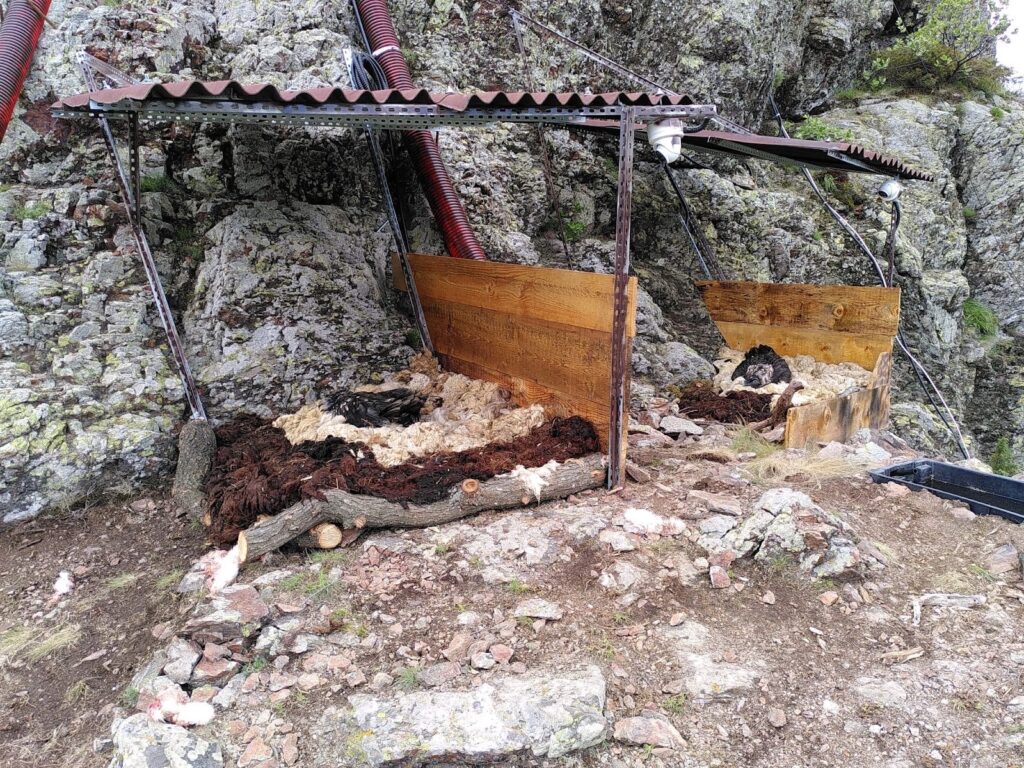
A collaborative achievement
This milestone was only possible due to the great commitment and collaboration between Sliven municipality and Sinite Kamani Nature Park as well as amazing coordination from Green Balkans, FWFF and a host of national and international partners. VCF played a key role in the coordination of the chicks (Bearded Vulture EEP) and ensuring technical and logistical expertise based on decades of experience restoring vulture populations across Europe.
Looking ahead
The release of Balkan, Boev, and LifeBG is the beginning. Over the coming weeks, the young vultures will be monitored by a dedicated team of volunteers and conservationists, who will ensure they adapt well to their surroundings and safely make their first flights into the wild. Their release is the first in a series of planned actions that aim to establish a stable breeding population of Bearded Vultures in Bulgaria.
This historic moment marks not just the return of a species but a renewed commitment to wildlife conservation in Bulgaria. As the vultures spread their wings over the Bulgarian skies once more, they carry with them a message of resilience, collaboration, and hope for future generations.
The Bearded Vulture LIFE Project

This historic release is part of The “Bearded Vulture LIFE” project – a comprehensive initiative, aiming to restore the Bearded Vulture and Cinereous Vulture across Bulgaria and the Balkans. With a budget of €5.17 million, co-funded by the European Union’s LIFE Programme, the project commenced in August 2023 and is expected to continue until 2030. Building upon the achievements of its predecessor, “Vultures Back to Life,” it is coordinated by Green Balkans, with five more partner organizations within Bulgaria, including the Fund for Wild Flora and Fauna, Foundation EkoObshtnost, EVN – Elektropradelenie Yug EAD, Severozapadno Darzhavno Predpriyatie – Vratsa, and “Sinite kamani” Nature Park Directorate. Furthermore, the project benefits from international collaboration, including the Vulture Conservation Foundation (VCF), responsible for the translocation and safeguarding of captive-bred birds secured for release. Additionally, the partner Milvus group is responsible for executing conservation efforts in Romania.

